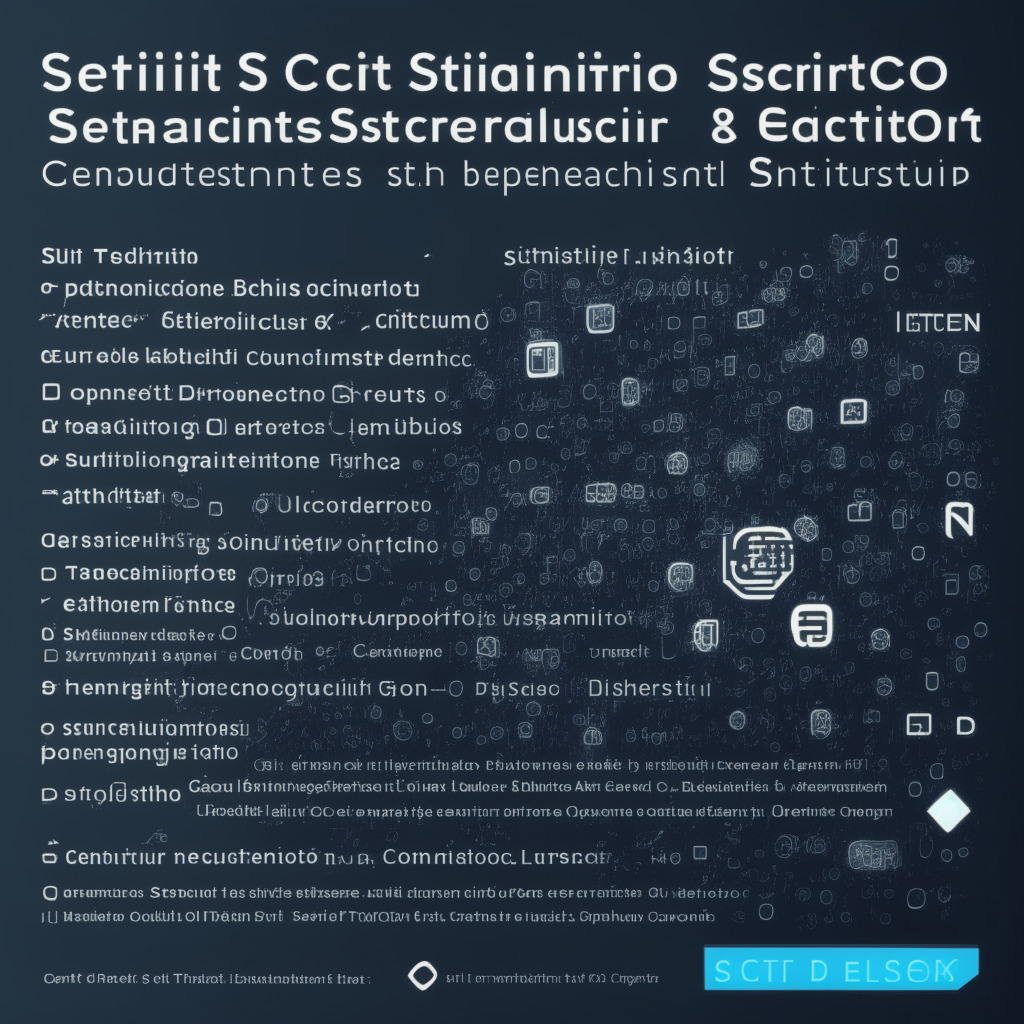Hardware wallet firm Ledger faces criticism over its “Recover” service, aimed at simplifying self-custody by allowing backup and restoration of private seed phrases. Amid security concerns, Ledger postponed the launch to focus on open-sourcing its protocol. While critics argue it goes against core ideals, some believe it may help onboard new users.
Search Results for: Ledger Recover
Crypto Community Debates: Ledger Recover’s Impact on Wallet Security and Trust
Ledger’s announcement of their upcoming private key recovery service, Ledger Recover, sparked skepticism among the crypto community, raising concerns about potential attack vectors and compromising the security of Ledger hardware wallets. The company has delayed the service and plans to address user feedback in an upcoming Twitter Spaces town hall event.
Ledger Recover Debate: Trust vs Trustlessness in Crypto Hardware Wallets
The launch of Ledger Recover, a service enabling Ledger hardware wallet users to back up their secret recovery phrases, has faced pushback from the crypto community due to concerns about seed phrase security. Ledger’s co-founder Éric Larchevêque responded stating that the wallet was never meant to be trustless and trust is necessary to use the product.
Ledger Recover: Revolutionizing Seed Backup or Security Risk in Disguise?
Ledger introduced a seed phrase backup product called Ledger Recover, potentially creating a security risk by introducing a third party as a single point of failure. Concerns arise regarding access to users’ private keys with hardware updates and open-source solutions are suggested to improve trustworthiness.
Ledger Recover Controversy: Analyzing the Crypto Hardware Wallet’s Communication Crisis
Ledger, a Paris-based hardware wallet maker, faced backlash after introducing its “Ledger Recover” seed phrase recovery service, raising security concerns among crypto enthusiasts. Misunderstandings and poor communication strategy added to the chaos, highlighting the importance of clear communication in the evolving crypto space, where users possess varying technical expertise.
Ledger Recover: A Reckless Security Risk or Innovative Seed Phrase Solution?
Ledger’s latest update, Ledger Recover, allows users to opt-in to recover private seed phrases with encrypted portions sent to third parties. Critics argue security risks while Ledger claims it improves traditional storage practices. The crypto community should focus on facts when assessing security innovations.
Crypto Wallet Wars: Ledger Recover Controversy and Competitors Capitalizing on Privacy Fears
Ledger faced backlash after introducing Ledger Recover, raising concerns about closed-source firmware and data leaks. Competitors Blockstream, Trezor, Cold Card, and BitBox slashed prices, emphasizing privacy and self-custody. The situation highlights trust, privacy, and user preference when choosing crypto wallets.
Ledger Recovery Debate: Enhancing Security or Risking a Backdoor? Pros, Cons & Alternatives
Ledger now offers an ID-based private key recovery service, Ledger Recovery, stirring up debate within the crypto community. Despite assurances that this optional service does not impose a backdoor, concerns remain about its potential effects on wallet security.
Ledger Recover: Balancing Security and User Experience in Crypto Wallets
Ledger introduced the “Ledger Recover” feature, aimed at future crypto users, storing encrypted seed phrases with third-party custodians. Critics argue it undermines privacy and security. The challenge lies in balancing user experience with dedication to core principles while attracting new users to blockchain and cryptocurrencies.
Crypto Seed Recovery: Ledger Recover vs Social Recovery – A Security Showdown
Ledger introduces a controversial ID-based seed phrase recovery service, raising security concerns due to the potential vulnerability of tying personal documents with crypto seed phrases. Alternative solutions like social recovery, which involve trusted guardians for wallet recovery, may better address the crypto community’s evolving needs without compromising security.
Ledger’s Recover Service: Securing Crypto Self-Custody or Compromising Privacy?
Ledger introduces “Recover”, a product for easier self-custody without compromising security by associating crypto wallets with ID documents. However, concerns over security and privacy have led to backlash, prompting Ledger to speed up their open-sourcing roadmap for increased verifiability.
Trezor Vs. Ledger: Soaring Sales Amid Phishing Fears and Controversial Recovery Features
This week, Trezor’s hardware wallet sales soared by 900%, coinciding with Reddit users’ warnings about fake Trezor phishing websites. Despite concerns over security flaws in Trezor and Ledger wallets, these hardware wallets remain the top choice for crypto enthusiasts, as their offline storage and tamper-resistant features provide significant protection against online threats.
Ledger’s Controversial Seed-Recovery Service: Security Concerns and Open-Source Solution
Ledger’s new seed-recovery service received criticism for security concerns, prompting the CEO to announce changes, including open-sourcing the Ledger Recover code, and adding passphrase protection. However, not all firmware will be open-sourced, and users must still trust the manufacturer for crypto safety.
Ledger Wallet Recovery Debates & Exciting Developments: A Busy Week for Crypto Enthusiasts
This week in crypto, Ledger introduced a wallet recovery service, ETH staking demand soared, Tether invested in Bitcoin, and Samsung partnered with the Bank of Korea for CBDC research. Additionally, Ripple acquired Metaco, and a Uniswap survey highlighted the need for DeFi simplification.
Ledger’s Key-Recovery Feature: The Privacy, Security, and Trust Dilemma in Crypto Wallets
Ledger’s new key-recovery feature, Ledger Recover, faces criticism as opponents argue it undermines the inherent security of hardware wallets. Privacy concerns arise since identities are linked to crypto wallets, and trust issues persist due to Ledger’s closed source code. The feature attempts to balance cold storage autonomy with custodial storage convenience, but increased security risks make its adoption uncertain among sophisticated users.
Ledger’s Recover Service Controversy: Unveiling Trust Issues and Understanding Security Models
Ledger faced backlash after launching its Recover service, a subscription offering that splits a user’s recovery phrase into three encrypted components. Concerns emerged over sensitive information security, trust in centralized entities, and possible backdoors. Ledger co-founder Éric Larchevêque called it a “total PR failure,” urging users to understand the complexities of the security model.
Ledger’s Recovery Service: Balancing Convenience and Security in Crypto Wallet Backups
Ledger introduces a new wallet recovery service, but faces mixed reactions from the crypto community due to concerns over privacy and security. The optional recovery service backs up users’ seed recovery phrases by encrypting and splitting them among third parties, aiming to prevent irreversible asset loss. However, some users fear it increases vulnerability.
Optional Wallet Recovery Feature: Ledger Addresses Community Concerns & Skepticism
Ledger’s CTO, Charles Guillemet, addresses community concerns over the wallet recovery feature, emphasizing it as an entirely optional choice for users. Despite skepticism, Guillemet reassures that neither Ledger nor trusted providers can access user secrets or passphrases.
Debate Rages Over Ledger’s Seed Phrase Recovery: Security Risk or Added Protection?
The crypto community is divided over Ledger’s seed phrase recovery feature, Ledger Recover, which divides the user’s seed phrase into three encrypted fragments sent to external entities. Critics argue it undermines hardware wallets’ security principles, while supporters appreciate the added security layer.
Ledger’s Controversial Nano X Update: Recover Feature Security Debate
Ledger recently introduced the Ledger Recover feature for its Nano X device, allowing users to encrypt and distribute seed phrases among different custodians. While Ledger claims enhanced security, concerns have been raised regarding ID verification and potential exposure to identity theft. Users must weigh potential benefits against associated risks in this multi-custodian recovery process.
Seamless Crypto Transactions: Ledger Live Integrates PayPal to its Platform
Hardware wallet producer Ledger has integrated its Ledger Live software with PayPal to allow US-based PayPal account holders to acquire digital assets directly. This new feature enables immediate transfer of cryptocurrencies such as Bitcoin, Ether, Bitcoin Cash, and Litecoin to the user’s wallet, eliminating the need for a separate withdrawal process. This integration aims to simplify crypto transactions while ensuring high security.
Crypto Wallet Security: Ledger’s Open Source Dilemma and the Future of User Protection
Ledger, a renowned crypto wallet hardware maker, faces security vulnerability concerns with its latest feature possibly exposing users’ seed phrases, prompting users to reevaluate their choice of wallet. Ledger’s team opens source code for its operating system to address the issue, focusing on security and transparency. This controversy highlights the importance of vigilance in the crypto industry’s ongoing efforts to secure assets while maintaining transparency and open-source development.
MIAX Acquires LedgerX: A Strategic Move for Swaps and Futures Market Expansion
MIAX, a subsidiary of Miami International Holdings, completed its acquisition of LedgerX, a regulated exchange and clearinghouse. This move supports MIAX’s growth strategy, allowing for the expansion of its capacity to introduce innovative products into the swaps and futures industry.
Ledger Controversy Sparks Trezor Discounts & Wallet Security Debates
In light of the controversy surrounding Ledger’s new service, Ledger Recover, competitor Trezor is drawing attention to their offerings by providing a 15% discount on their hardware wallets until May 21. The discounted prices aim to capitalize on Ledger’s situation and highlight Trezor’s open-source security features.
Ledger’s Deleted Tweet Controversy: Balancing Trust and Security in Crypto Wallets
Ledger CTO Charles Guillemet clarified that the wallet’s OS requires user consent before accessing private keys, dispelling concerns after a controversial tweet about firmware capable of extracting users’ private keys. The controversy highlights the delicate trust balance and the importance of transparency between wallet providers and users.
Ledger’s Controversial Update: Balancing Security, Privacy, and Trust in Crypto Wallets
Ledger’s hardware wallet is facing criticism after announcing an update that allows users to link their seed phrase to their identity card or passport, raising privacy concerns. This update necessitates trusting a third party with sensitive ID information, making recovery seed phrases potentially vulnerable to data leaks, hacks, and possible government surveillance.
LedgerX Sale Amid FTX Bankruptcy: Impact on Crypto Exchange Trust and User Vulnerability
The bankruptcy court approved the sale of LedgerX to M7 Holdings in FTX’s Chapter 11 proceedings, signaling hope for investors seeking to recover investments. This highlights the need for vigilance and consideration of risks surrounding crypto exchanges, given potential credibility and safety issues.
The Great Pivot: How Bitcoin Went From Black Sheep to Golden Goose
“The SEC’s categorization of Bitcoin as a utility sparked a shift in its narrative, influencing large corporates and changing media portrayal. Despite obstacles like US regulation and offline storage controversies, optimism underlies the crypto community with companies like Ledger seeking innovative solutions.”
Debunking MetaMask Tax Controversy: Safeguarding Decentralized Systems from Misinformation
Misinformation recently claimed that ConsenSys updated its terms to collect taxes on cryptocurrency transactions. The company clarified the inaccuracy, highlighting the need for balanced evaluation and skepticism in the crypto community to prevent spreading false information. Transparency and proactive addressing of ambiguities are essential for trust-building.
Tether Reduces Banking Risk & Ripple’s SEC Case Win: Impact on the Crypto Industry
Tether reduced counterparty risk by withdrawing $4.5 billion from banks, reinforcing its USDT stablecoin, while Ripple scored a victory against the SEC in their legal dispute. Simultaneously, security concerns arise as Ledger launches its recovery service for lost seed phrases.
Open-Source vs. Closed-Source Wallets: Analyzing Security Risks and Trust in Manufacturers
Charles Hoskinson, Cardano founder, prefers open-source software for security, while Ledger co-founder Eric Larchevêque argues it poses elevated security risks. Larchevêque believes closed-source wallets with secure elements offer higher security levels and states that security always involves trade-offs and requires trust in hardware wallets.
EU’s New Crypto Regulatory Outlook: Balancing Sustainability, Transparency, and Market Growth
ESMA’s latest consultation paper on Markets in Crypto Asset regulation aims at integrating the crypto market by 2024, focusing on sustainability, consistency in crypto services, transparency in pre, and post-trade data, record-keeping by CASPs and accessible white papers. The initiative stresses environmental sustainability, encourages business continuity policies, and emphasizes real-time transparency in transactions.































